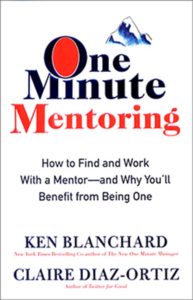With tons of little kids in the house these days (my own, typically, although occasionally others drop by to join in on the circus), I’m now doing a lot of my work in a co-working space. This has been a radical change in my work life, and one I’m embracing so far.
Very quickly it has also reminded me of the office niceties and water cooler politics that come along with working in a physical space with others, and has brought up some issues I haven’t thought of in a long time.
One issue that’s been exceedingly clear? Our work lives are full of things we don’t say. Not necessarily big, hairy, work-related things, but little, smaller, people-related things. And the more physical time we spend with those we work with, the more obvious this is.
Take one case in point: It’s cold and flu season in Argentina. And with that comes sick people.
I clearly remember working at Twitter and getting emails from coworkers and bosses asking – no, begging – folks not to come to work sick. The efficacy of these messages was limited, for the simple reason that many of us like our work and certainly don’t want to slack off in getting it done (or be seen to be slacking off). Many of us also excel at not taking the rest we need, but that’s a blog post for another day.
One day recently, I showed up at the co-working space and pulled out my regular chair and start tapping away. So I’m sitting, writing, working, and soon I realize that I am sitting next to someone who needs to desperately be underneath the covers with a vat of chicken soup by their side. I work. I hear the hacking. The sneezing. See the tissues pile up. At one point, I move to the other side of the room, hoping to put some distance between me and the germs. But my paranoia of getting sick continues (I have preemies at home, people). Ultimately, I decide to leave, right before said plague victim takes it upon himself to head home and save me the trouble.
When I went home and told my husband about it that night, he challenged me about why I hadn’t said anything. And we talked through the nuances of when you can say something and when you can’t, as this is just one of many examples in my life right now where I’m hugging the line between speaking out and staying quiet.
Ultimately, I think I handled this particular case pretty badly. I can chock it up pretty easily to my fear of conflict, even in the smallest of things (like this), but at the end of the day I do wish I had been able to woman up a little bit more to say something empathetic like, “Hey, you seem sick! Why don’t you go home and rest?”
Avoiding conflict like the plague is not a way to live, and not something I’m proud of. And being able to have tough conversations is something that I’m finding more and more needed as the years go by, as I add more kids to my life and more work to my growing business, and it’s something I’m actively working on improving in my own life.
As with everything, though, it takes baby steps.
A question for you: What have you done to try and work on being better at having hard conversations?





I have a saying: if there’s an elephant in the room, it will eventually come out of my mouth. Most of the time it’s a good thing and I’m careful how I say things. It’s not that I’m crazy about conflict, because I’m not. But I like even less that feeling that there’s something going unsaid. I have been thanked for resolving issues many times. Always be kind.
LOVE this saying!!!!
Dear Clair, I HATE to mention this , but…. your font size is too small.
I know you will crush me for saying something but really, yours is the smallest I get and it’s just time to stop this!
Oh and by the way when I finally clicked on my E-mail to respond, it took me to this great site with wonderful fonts!
You know if I had not decided to be ‘combative’… I would have never found this better way to read your notes. HMMMMMM.
Thanks for todays note.
Font size in the newsletter you mean or the blog? I have terrible eyes and so enlarge everything and so have no sense of what normal is!!!
I read the above and a few years ago,I may have done the same as you. I do think I have improved quite a bit. Although I do find myself in another predicament since having kids. I find handling conflict with another parent or a child a lot more difficult. Where I see a child about to hurt mine, I go into protective mum mode and really don’t care about the conflict. Its the other moments, like your child is sick should they really be at this party or when a child is being mean i.e. troubling the birds or throwing something at them or when they go up the slide instead of using the stairs. The parents do nothing or just oblivious. Its this type of conflict I avoid. I play out what I want to say in my head and what may happen. Sometimes I just feel I might upset the parent and don’t say anything and other times, I thought it through so long, that the moment to say something has past.
Hopefully in time to come, I will get better, considering I only became a parent three years ago 🙂
Three years ago for me too, Bharti. We’re learning!
Hi Claire,
Funny to get your message today, as just a few hours ago I experienced a moment when I did have (instead of avoiding it) a tough talk: Uber driver texting while driving, with both hands, barely touching the wheel. With myself on front seat, my hubby and son and a friend on the back, I turned to him and said “oh, no, no! No texting while driving.” He stopped and apologised, as he should.
Speaking up about something that puts at risk my/my family’s wellbeing is more important than “pleasing” strangers. I’m never rude, but I stand my ground.
SO important you did that. I need to learn from you. I feel there are things that happen daily that I DON’T say, and this is such a good example.
I’ve been working on this issue in group therapy for decades, literally. It’s never easy. Like Maria, I, too, spoke up when a friend was texting while driving. I got a lot of push back and had to endure some defensive mocking, but he eventually changed his behavior–at least around me.
Learning the basics of responsible communication helps, which means not making the other person wrong and owning your own reaction. (“When you do _____ behavior, I feel ____.”) It’s harder than it sounds!
There’s a fabulous book on this very subject called Crucial Conversations. Highly recommended. https://www.amazon.com/Crucial-Conversations-Talking-Stakes-Business/dp/0071771328/ref=pd_lpo_sbs_14_t_0?_encoding=UTF8&psc=1&refRID=4FJ9R0SS5E292JF4XEXK
Just ordered this one, Martha;)
I start out trying to understand their motivation and couch my opening in those terms, such as “I know the project you are working on is probably really important to you…” and end by stating my motivation for speaking up, “but I have X situation and what you are doing is potentially really hurtful to me and my loved ones.”
Yes, I see that.
Sometimes a brief note is more effective …
True.
Hey Claire,
Great post on the ever present ‘should I say something’ to the people around you. In my previous jobs, I actually trained people in having ‘difficult conversations’ and I just recently come to the conclusion that we actually avoiding them for the wrong reason. What dawned on me is that when people speak up they care – ergo not saying what you want to say means you don’t care enough. Once you get comfortable with the thought of ‘I am telling you this not because I want to criticise but in order to help you improve/get better/realise a blindspot/ etc. For the recipient of the feedback, it also helps to be aware that people care when they say something – does not mean you need to take it on board, that is up to you.
So true: “‘I am telling you this not because I want to criticise but in order to help you improve/get better/realise a blindspot/ etc”
I was very bad at hard or even slightly uncomfortable conversations. I still don’t enjoy them, who does? But being a manager, even of a small team, made me overcome my fear. There’s always unpopular decisions, someone who feels treated unfairly, someone who is not performing as well as they could, and it falls to the manager to address all those issues. I’ve learned to be as positive as I can, offer help, be encouraging, and also ask for help myself.
Thanks for sharing, Anna.
I can certainly relate to this. I have been anxiously avoiding conflict all my life, and I’m much older than you!! I have borrowed Brene Brown’s motto and made it my own, quoting it to myself and loved ones almost daily, “discomfort over resentment”. The space in between is incredibly narrow, if you choose to stay comfortable and say nothing, the result is almost always resentment.
I forgot that phrase! SO good.
I’m one of those people who does not have a hard time having unpleasant conversations. As a husband, father, grandfather, brother, employee, boss, etc. I have often had the necessity (and
opportunity) to have the “hard” talks. Here’s how I handle these situations:
1. Focus on the positive outcome. If you are sincere in having a positive outcome, you can usually come across as showing how the outcome can benefit both parties. Ask yourself, “Am I complaining just to be an a–hole, or is there really some benefit to this hassle?”
2. Don’t procrastinate. As soon as your intuition tells you something has to be said, plan to speak up as soon as possible. We often make bad situations worse because the longer we wait to speak up, our fear, anger and other negative emotions tend to get worse.
3. Give the other person some credit. In most situations, the other person understands why you’re complaining, it’s just a matter of whether or not they want to comply with your request.
4. Do not be attached to the outcome. If the other person agrees and complies, fine. If they do not, walk away (as you did with the sick co-worker) or find other solutions/compromises.
And yet the road to not being attached to the outcome is so long! When will I get there? 😉
I find conflict to be so terrible but so necessary in life. I used to over think it way to much. Now I just breathe a quick prayer and dive in. I also make every effort to do it in person because then you can see the non verbals of the person you are speaking with.
Yes, overthinking is my trap;)
Claire,
I have spent the last 3 years learning how to have difficult conversations. I have had to force myself to initiate these conversations.
In the process I have learned that 1) my fear of the conversation was often worse than the actual conversation, 2) forcing myself to initiate the conversation and then continue it relieved me of the “I should have said” conversation (and emotions) I have often experienced before and lastly, 3) my view on a matter is just as important as someone else’s. I owe it to myself to address the issue (not verbally assault the person), so that I can have peace of mind. It has not been easy, but it has been worth it. And I have become a more confident person as a result.
#2 is SO true for me!